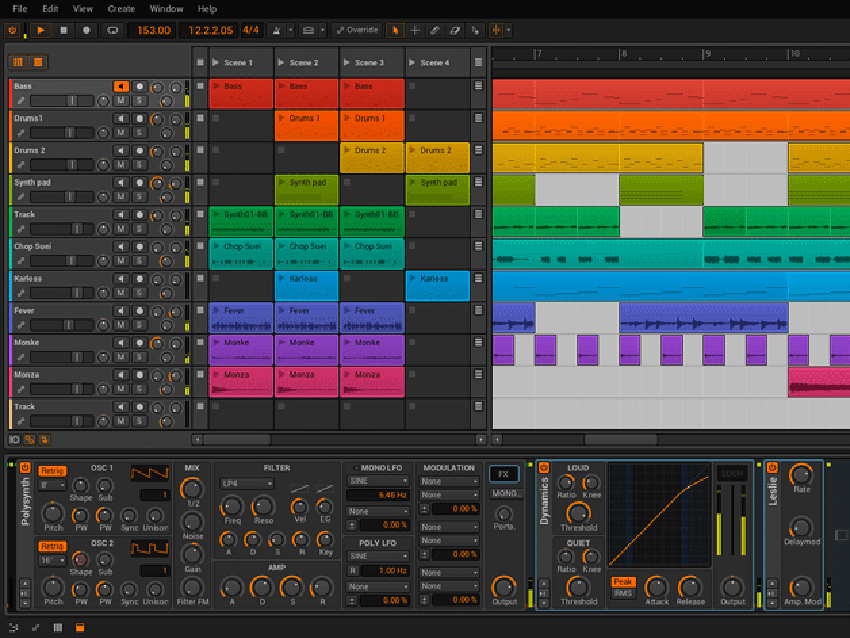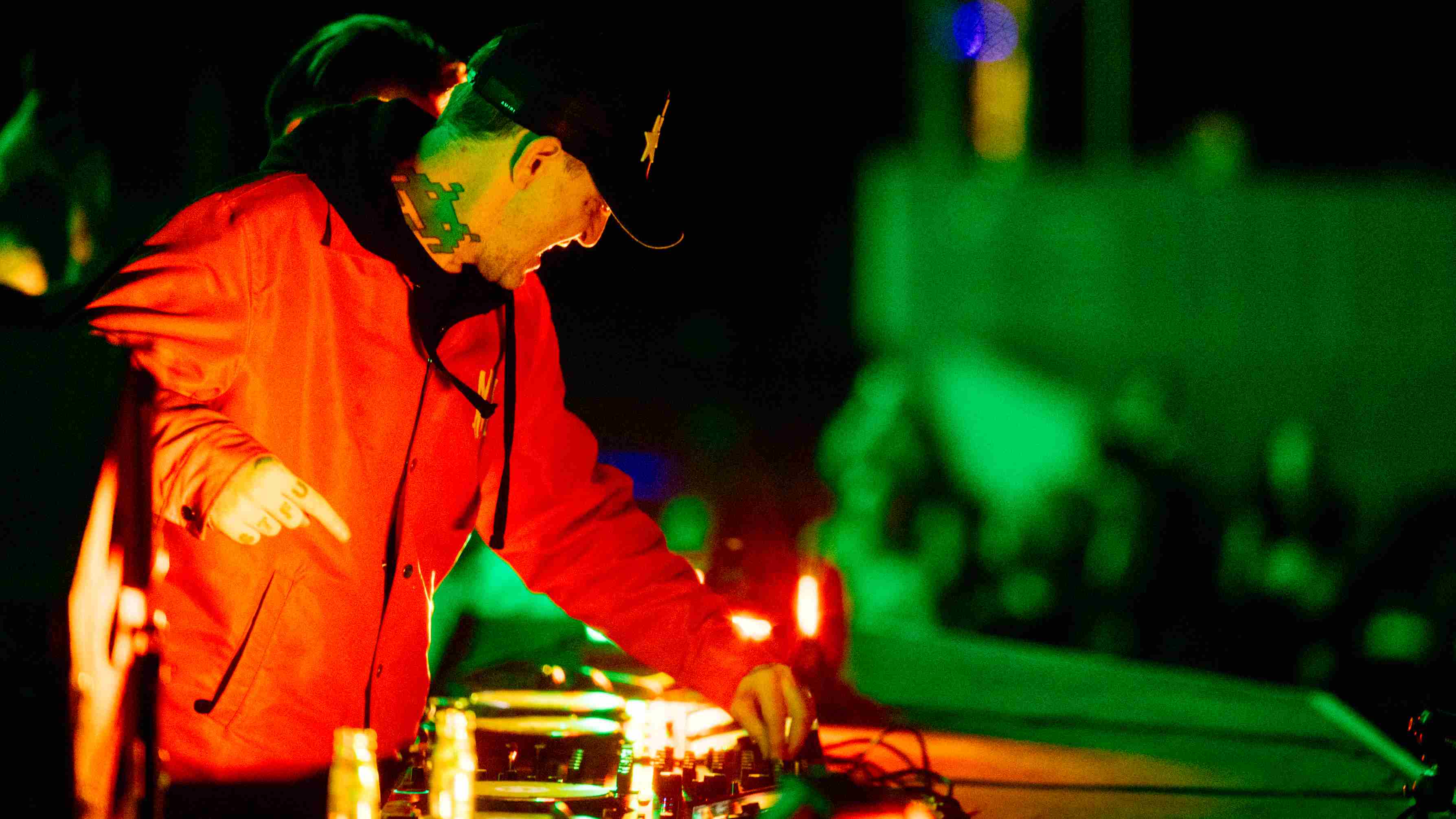Do DAWs share too many ideas?
The software developers have their say

It's frequently said that, as far as consumers are concerned, choice is a good thing. The argument goes that if people can choose from a wide range of options, manufacturers or service providers will have to work harder for their dollar and provide better products.
As a theory, it's pretty sound - and at first glance, it would appear that anyone who's looking to buy a new DAW is indeed spoilt for choice. There are now numerous music production applications available for Mac, PC and iOS, so if you shop around, you might expect to be able to find something that's pretty much tailored to your specific requirements.
It's worth stopping to consider, though, whether this market is really quite as wide and varied as it seems. Behind the oblique names of our DAWs, are they really that different, or do they all do pretty much the same thing in a very similar way? What's more, if the latter is true, does it really matter?
"Is it really the case that all DAWs adhere to pretty much the same blueprint?"
These questions feel particularly relevant at a time when there's a lot of excitement surrounding Bitwig Studio, a new DAW that's currently being beta tested. When details and screenshots of were first released, many of the comments - both negative and positive - focused on the software's apparent similarities to Ableton Live, with some speculating that it's just going to offer 'more of the same'.
It would be unfair to make any judgement about Bitwig Studio before it's finished and we've had time to test it, but for better or worse, comparisons with Live will be inevitable. Is it really the case, though, that all DAWs adhere to pretty much the same blueprint?
Same difference
Justin Frankel is founder of Cockos Incorporated, which develops the Reaper DAW. He believes that, to an extent, all DAWs follow the same pattern. "I think that without any question DAWs are generally much more similar than they are different; having said that, much of their design is dictated by their function," he tells us.
"A Rickenbacker 330 and a Fender Telecaster are both very similar (guitars, six strings, pickups, knobs, etc) and are also quite different."
Get the MusicRadar Newsletter
Want all the hottest music and gear news, reviews, deals, features and more, direct to your inbox? Sign up here.
Frankel seems to be suggesting that the differences between DAWs can be relatively subtle, but when we spoke to Jonathan Hillman - product manager for PreSonus' Studio One - he came up with some that are quite specific.
"Although one can certainly point out many similarities between DAWs, there's a wealth of genuine choices," argues Hillman. "Each DAW has distinctive approaches to user interface and feature-set. Some are stronger for certain types of work than others. Some try to serve a huge variety of different applications, while others are more specialised, focusing on certain specific types of applications and users. And DAWs don't all sound the same."
All of these claims are open to debate, but it is true that certain DAWs are perceived as designed for what you might loosely term 'electronic music' while others are seen as recording platforms. The argument about sound quality is not one we're going to get into here.
Close relations
If we accept that there are many similarities between DAWs, then, we next have to ask why? It surely can't be that every developer has coincidentally stumbled onto the same ideas at the same time - so are they 'inspired' by each others' applications, or do their new feature ideas come from somewhere else?
"We watch the development of other DAWs very closely, and we pay close attention to user reaction and interaction," says Jonathan Hillman. "We're also in constant and direct communication with our own user base via our forums, and what we learn from this guides our frequent maintenance releases.
"However, the main arc of our Studio One development comes from a clear internal vision for the future of DAWs and for the future of software and user interaction in general."
PreSonus likes to keep an eye on the competition, then, but how does Frankel go about developing Reaper? "We don't generally look for new features [in other DAWs] - many of our features come from our own experiences using the software, others still come from users who request specific things.
"In either case, we like to digest what the features imply, and come up with a sensible way of integrating the functionality in Reaper.
"I very, very rarely use other DAWs. In the past five years, other than testing plug-ins and ReWire with other hosts, the closest thing to a DAW other than Reaper I've used is Maschine."
On the flipside, both Hillman and Frankel say that there have been times when they've seen new features in other DAWs and suspected that they've been inspired by Studio One and Reaper respectively. While neither claims to be upset when this happens - "if we do things that work well, it is only reasonable for other people to follow," says Frankel - it does raise the question of whether it's possible to copyright a DAW feature so that no one else can implement it?
"If we can take a few leaders in other industries as an example, the answer is yes," responds Hillman. "However, once a concept has been publicly realised, trying to 'protect' it is unwise. While you're focused on that, everyone else has the opportunity to focus on future innovation, which is the only thing that matters to the user."
"If each DAW was required to have a completely unique feature-set, none of them would be even remotely usable." Justin Frankel, Cockos
Frankel is similarly dismissive of the idea of trying to adopt a 'hands-off or else' approach to new music software technology: "I am not a lawyer, but my understanding is that that could fall into the realm of patents. Software patents are a widely criticised phenomenon, and I for one would like to see them eliminated."
It seems that some similarity between DAWs is pretty much inevitable, then: "If each DAW was required to have a completely unique feature-set, none of them would be even remotely usable," notes Frankel. More than that, the exchange of ideas between developers has probably led to the creation of better software.
"It's easy to see that isolationism doesn't work," says Hillman. "If we are to serve music creators best, we need to realise that there are many kinds of users with a wide variety of work styles and applications, and none of us should aim to solve them all. Those who are focused on the competition instead of the users they want to serve have little hope of surviving in the long run."
Speaking of the long run, we shouldn't end without mentioning that it's not just software that's evolving, but also the platforms on which we use it. The iPad is fast becoming a music-making platform in its own right, so where do you look for inspiration when you're developing a DAW for that?
Going mobile
WaveMachine Labs Auria is a new iPad DAW that'll be released soon. Developer Chris Miller says: "While designing Auria, we certainly drew on aspects of desktop DAWs - their interfaces and workflows are what people have come to expect in the realm of digital music production.
"However, since Auria was built from the ground up, we needed and were able to rethink a lot of things, most particularly relating to the touchscreen interface. Things like Pro-Q (a great graphic EQ plug-in from FabFilter) becomes a whole new experience when using a touchscreen.
"We're excited to be exploiting this technology in new and innovative ways, and it heavily influenced the developmental stance we took with Auria."
As more touch-based hardware options become available, it seems inevitable that we'll see different breeds of recording software emerging. So even if you don't think that you've got genuine choice now, there's a good chance that you will do in the future.


Computer Music magazine is the world’s best selling publication dedicated solely to making great music with your Mac or PC computer. Each issue it brings its lucky readers the best in cutting-edge tutorials, need-to-know, expert software reviews and even all the tools you actually need to make great music today, courtesy of our legendary CM Plugin Suite.










